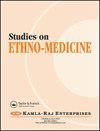求助PDF
{"title":"在印度拉贾斯坦邦的传统产后护理实践中使用的药用植物","authors":"A. Dudi","doi":"10.31901/24566772.2018/12.04.568","DOIUrl":null,"url":null,"abstract":"Pali district of Rajasthan has powerful traditional practices in which plants play a key role. The present study endeavour to investigate and document the various medicinal plants used as traditional method of postnatal care of mother and children. A total of 120 rural women from randomly selected villages within the age group of 27 to 45 years were interviewed. The investigation revealed that 27 species of ethno medicinal plants were recorded belonging to 20 families used by the rural people of Pali district, Rajasthan for postnatal care practices. These medicinal plants were used as nutritious and medicinal preparations for postnatal care in the form of powder, decoction, laddu or haluwa etc. The mixture of different plant parts were also used for preparations. Most of the rural women (70 to 95%) used ethno medicinal preparation that is, dried ginger (Zingiber officinale) mixture, carom seed (Trachyspermum ammi), laddu, haluwa, edible gum (Allium sativum) laddu, harrira, fenugreek (Trigonella foenum-graecum) seed laddu just after delivery. Some of the popular formulations of carom, turmeric (Curcuma longa), nutmeg (Myristica fragrans), cloves (Syzygium aromaticum), garlic (Allium sativum) and asafoetida (Ferula assafoetida) were used by ninety percent rural women to give comfort to the baby from digestive disorders and cold and cough. These practices if unified with modern healthcare system could promote the health status of thousands of women and their neonate Ethno Med, 12(4): 212-220 (2018) DOI: 10.31901/24566772.2018/12.04.568 © Kamla-Raj 2018","PeriodicalId":39279,"journal":{"name":"Studies on Ethno-Medicine","volume":" ","pages":""},"PeriodicalIF":0.0000,"publicationDate":"2018-10-09","publicationTypes":"Journal Article","fieldsOfStudy":null,"isOpenAccess":false,"openAccessPdf":"","citationCount":"5","resultStr":"{\"title\":\"Medicinal Plants used During Traditional Postnatal Care Practices in Rajasthan, India\",\"authors\":\"A. Dudi\",\"doi\":\"10.31901/24566772.2018/12.04.568\",\"DOIUrl\":null,\"url\":null,\"abstract\":\"Pali district of Rajasthan has powerful traditional practices in which plants play a key role. The present study endeavour to investigate and document the various medicinal plants used as traditional method of postnatal care of mother and children. A total of 120 rural women from randomly selected villages within the age group of 27 to 45 years were interviewed. The investigation revealed that 27 species of ethno medicinal plants were recorded belonging to 20 families used by the rural people of Pali district, Rajasthan for postnatal care practices. These medicinal plants were used as nutritious and medicinal preparations for postnatal care in the form of powder, decoction, laddu or haluwa etc. The mixture of different plant parts were also used for preparations. Most of the rural women (70 to 95%) used ethno medicinal preparation that is, dried ginger (Zingiber officinale) mixture, carom seed (Trachyspermum ammi), laddu, haluwa, edible gum (Allium sativum) laddu, harrira, fenugreek (Trigonella foenum-graecum) seed laddu just after delivery. Some of the popular formulations of carom, turmeric (Curcuma longa), nutmeg (Myristica fragrans), cloves (Syzygium aromaticum), garlic (Allium sativum) and asafoetida (Ferula assafoetida) were used by ninety percent rural women to give comfort to the baby from digestive disorders and cold and cough. These practices if unified with modern healthcare system could promote the health status of thousands of women and their neonate Ethno Med, 12(4): 212-220 (2018) DOI: 10.31901/24566772.2018/12.04.568 © Kamla-Raj 2018\",\"PeriodicalId\":39279,\"journal\":{\"name\":\"Studies on Ethno-Medicine\",\"volume\":\" \",\"pages\":\"\"},\"PeriodicalIF\":0.0000,\"publicationDate\":\"2018-10-09\",\"publicationTypes\":\"Journal Article\",\"fieldsOfStudy\":null,\"isOpenAccess\":false,\"openAccessPdf\":\"\",\"citationCount\":\"5\",\"resultStr\":null,\"platform\":\"Semanticscholar\",\"paperid\":null,\"PeriodicalName\":\"Studies on Ethno-Medicine\",\"FirstCategoryId\":\"1085\",\"ListUrlMain\":\"https://doi.org/10.31901/24566772.2018/12.04.568\",\"RegionNum\":0,\"RegionCategory\":null,\"ArticlePicture\":[],\"TitleCN\":null,\"AbstractTextCN\":null,\"PMCID\":null,\"EPubDate\":\"\",\"PubModel\":\"\",\"JCR\":\"Q2\",\"JCRName\":\"Social Sciences\",\"Score\":null,\"Total\":0}","platform":"Semanticscholar","paperid":null,"PeriodicalName":"Studies on Ethno-Medicine","FirstCategoryId":"1085","ListUrlMain":"https://doi.org/10.31901/24566772.2018/12.04.568","RegionNum":0,"RegionCategory":null,"ArticlePicture":[],"TitleCN":null,"AbstractTextCN":null,"PMCID":null,"EPubDate":"","PubModel":"","JCR":"Q2","JCRName":"Social Sciences","Score":null,"Total":0}
引用次数: 5
引用
批量引用
Medicinal Plants used During Traditional Postnatal Care Practices in Rajasthan, India
Pali district of Rajasthan has powerful traditional practices in which plants play a key role. The present study endeavour to investigate and document the various medicinal plants used as traditional method of postnatal care of mother and children. A total of 120 rural women from randomly selected villages within the age group of 27 to 45 years were interviewed. The investigation revealed that 27 species of ethno medicinal plants were recorded belonging to 20 families used by the rural people of Pali district, Rajasthan for postnatal care practices. These medicinal plants were used as nutritious and medicinal preparations for postnatal care in the form of powder, decoction, laddu or haluwa etc. The mixture of different plant parts were also used for preparations. Most of the rural women (70 to 95%) used ethno medicinal preparation that is, dried ginger (Zingiber officinale) mixture, carom seed (Trachyspermum ammi), laddu, haluwa, edible gum (Allium sativum) laddu, harrira, fenugreek (Trigonella foenum-graecum) seed laddu just after delivery. Some of the popular formulations of carom, turmeric (Curcuma longa), nutmeg (Myristica fragrans), cloves (Syzygium aromaticum), garlic (Allium sativum) and asafoetida (Ferula assafoetida) were used by ninety percent rural women to give comfort to the baby from digestive disorders and cold and cough. These practices if unified with modern healthcare system could promote the health status of thousands of women and their neonate Ethno Med, 12(4): 212-220 (2018) DOI: 10.31901/24566772.2018/12.04.568 © Kamla-Raj 2018


